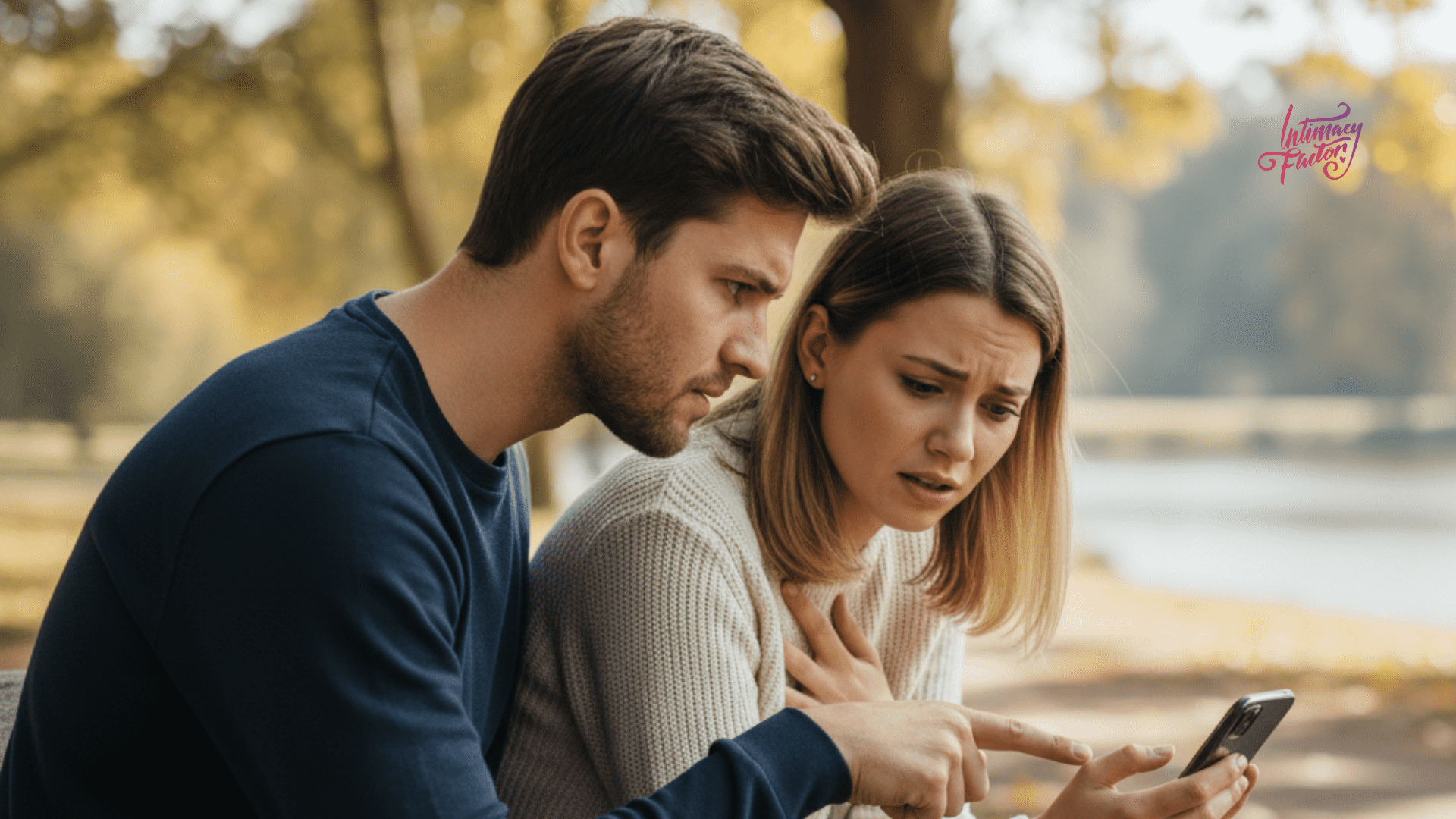When Your Partner Tracks Your Every Move

Relationships are built on trust. When trust is replaced with control, love turns into surveillance. Many people brush off constant monitoring as care or concern, but it signals something deeper and more harmful. If your partner keeps tabs on where you go, who you talk to, and how you spend your time, it is not affection. It is a sign of control.
Why Monitoring Happens
Partners monitor for different reasons, but the core is always about power. Some act out of insecurity because they fear losing you and believe control prevents rejection. Others act out of distrust and instead of addressing doubts, they rely on tracking your actions. Some are driven by possessiveness because they see the relationship as ownership rather than partnership. There are also partners who use monitoring as manipulation, conditioning you to accept surveillance as normal.
The behavior often begins with small check-ins. At first, it may look like harmless concern: a quick “Where are you?” or “Who are you with?” But over time these habits escalate. What starts as frequent calls becomes location tracking. Then it turns into checking your social media, demanding your passwords, or questioning every interaction you have. The shift is subtle but constant, until your daily life feels managed instead of shared.
The Emotional Impact
Being monitored slowly erodes your sense of self. You lose privacy and begin to feel like nothing is yours anymore. Anxiety builds as you anticipate questions and prepare to defend simple choices. Isolation grows when friends fade away because your partner disapproves.
Over time, this constant scrutiny damages more than your schedule. It weakens your confidence and trust in yourself. You begin to second-guess harmless decisions, like meeting a friend or spending time alone. Instead of feeling supported, you feel suffocated. Instead of closeness, you feel distance.
Emotional health suffers in this environment. Many people under constant surveillance describe living in a state of alert, always ready to justify their actions. This is not love. It is control disguised as care.
How to Recognize Monitoring as Control
Some partners frame monitoring as love. They say, “I just care where you are.” The key is not in the words but in the pattern. If the check-ins create fear, anxiety, or guilt, they are not rooted in love.
You may notice:
Demands for access to your phone, messages, or accounts
Anger if you do not respond immediately
Constant questions about who you spend time with
Requests for your live location or frequent updates
Guilt trips when you want time alone
These actions are not about safety or affection. They are attempts to manage your independence. If this pattern matches your experience, you are not being cared for. You are being controlled.
Why This Is Toxic
Healthy love respects independence. Toxic love erases it. When you are monitored, you are treated as property, not as a partner. The dynamic shifts from equality to control. Over time this creates a power imbalance that grows harder to undo.
Research on abusive relationships shows that control is often the first warning sign before more harmful behaviors develop. Monitoring is rarely just about curiosity. It is about power. Power in this form is never safe.
What makes it more damaging is the way it normalizes itself. At first you may resist, but repeated exposure makes surveillance feel like a normal part of love. By the time you recognize it as abuse, it has already shaped how you see yourself and your relationship.
Steps to Protect Yourself
The first step is to acknowledge the behavior for what it is. Do not excuse it as care. Once you recognize the pattern, you can start protecting your boundaries.
Refuse to share your passwords, accounts, or trackers. Communicate clearly that your privacy and independence are non-negotiable. This does not mean hiding things; it means preserving the healthy space every individual deserves.
Seek support from trusted friends or family. Isolation makes you more vulnerable to control. Share your concerns with people who can remind you of your worth and independence.
Evaluate your safety if the monitoring escalates. If you face threats, aggression, or physical intimidation, consider reaching out to professional or protective resources. Organizations, counselors, or hotlines can provide both guidance and safety planning.
Above all, remind yourself that being loved should never mean being watched. Real love creates room for freedom, not restrictions.
What Healthy Relationships Look Like
To see the difference, compare the dynamics. Healthy love encourages independence, respects privacy, supports friendships, and builds trust through open communication. Toxic control demands access, questions loyalty, creates guilt for independence, and equates love with possession.
A healthy partner does not need to track you. They trust you. They believe in your judgment. They know that closeness grows stronger when each person has the freedom to be themselves.
Independence is not a threat to intimacy. It is the foundation of it. The more secure both partners feel in their individuality, the more connected they become together.
When Love Feels Like Surveillance Instead of Trust
If you see these signs in your relationship, it may be time to step back and reflect. Ask yourself if you are free to make choices without fear. Ask yourself if you feel trusted. Ask yourself if you feel equal in this partnership.
If the answer is no, you deserve better.
Love does not follow your every move. Love gives you the space to be yourself. If your partner insists on monitoring you, recognize it as the red flag it is. Caring is not controlled. Respect is not surveillance. Real intimacy thrives when freedom and trust are present.
Also Read:
The Conditioning Trap: Why You Keep Questioning Yourself in Love
Just so you know: Some links on this blog are affiliate links. If you choose to make a purchase through them, I might earn a small commission, and it won't cost you anything extra. Your support makes a big difference and helps me continue to bring you valuable content.

I write about the unexpected, beautiful, and sometimes painful sides of love, dating, romance, breakups, intimacy, marriage, and everything in between. My goal? To help you spot the toxic, protect your peace, and never forget your worth.




